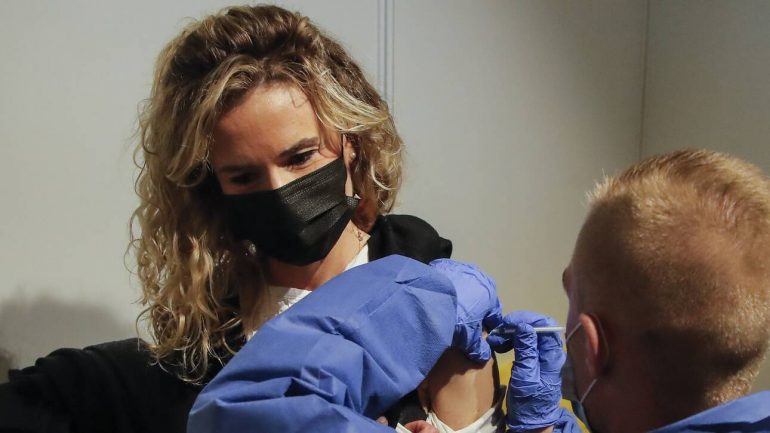Immunity to the coronavirus lasts at least a year, possibly a lifetime, and improves over time, especially after vaccination, according to two new studies.
Their findings may help allay fears that protection against the virus will be short-lived, according to the New York Times.
Both studies report that most people who have recovered from Covid-19 and who were later vaccinated will not need booster doses. In contrast, vaccinated people who have never been infected with the virus will probably need these doses, but the same will apply to the minority who, while infected, failed to build a strong immune response.
Both studies involved people who had been exposed to the coronavirus about a year ago. Cells that retain coronavirus "memory" remain in the bone marrow and can trigger the production of antibodies whenever needed, according to a study published Monday in the journal Nature.
The other study, posted on the Internet by BioRxiv, a website that specializes in biological research, concluded that so-called B cells continue to mature and strengthen for at least a year after the initial infection.
"Studies are in line with the growing literature, which states that immunity acquired through infection and vaccination against SARS-CoV-2 appears to be long-term," said Scott Hensley, an immunologist at the University of Pennsylvania. did not participate in the study.
These studies may allay concerns that immunity to the new coronavirus is transient, as in the case of coronaviruses that cause common colds.
But those viruses change significantly over the years, Hensley added. "The reason we are infected with common coronaviruses repeatedly throughout our lives may be related to their variants and not to immunity," he said.
In fact, memory B cells produced in response to SARS-CoV-2 infection and boosted by vaccination are so potent that they fight even new strains of the virus, eliminating the need for a repeat dose, according to the Michael Nussenweig, an immunologist at Rockefeller University in New York, led the study on the body's memory maturation.
"Those who are infected and have received the vaccine really have an excellent response and a strong set of antibodies, as their antibodies continue to evolve," he said. "I estimate that they will last for a long time."
The result may not apply in the case of protection derived exclusively from vaccines, as immune memory is likely to be organized differently after immunization compared to that caused by natural infection.
This means that people who have not had Covid and have just been vaccinated may need an additional dose, he added. Nussenweig. "This is something we will know very, very soon," he said.
A landmark study in 2007 showed that antibodies could theoretically survive for decades, perhaps even beyond life expectancy, suggesting the long-term presence of memory B cells. However, the new study offers rare evidence of their existence.
One year after their illness, neutralization activity in unvaccinated volunteers was lower against all forms of the virus, with the largest loss observed against the South African variant.
In contrast, vaccination significantly increased antibody levels, confirming the results of other studies.
But what about the antibodies of those who have not become ill but have been vaccinated? All the experts agreed that immunity is likely to be very different between people who have never had Covid-19.
Fighting a live virus is different from responding to a single viral protein introduced by a vaccine.
And to those who had Covid-19, the initial immune response had time to mature within six to 12 months before the vaccine arrived. "These kinetics are different from those that were immunized and then re-immunized three weeks later. This does not mean that they may not have such a great response, but it could be very different.
